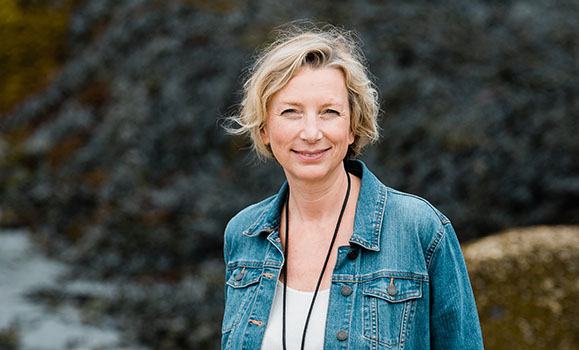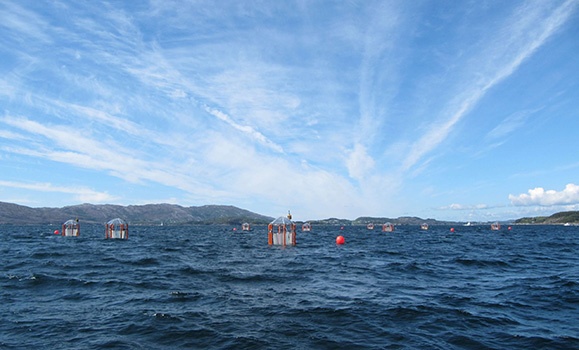The United Nations calls the ocean “the lungs of the planet.” It absorbs 25 per cent of all carbon dioxide emissions and sequesters up to four times more carbon dioxide (CO2) from the atmosphere than terrestrial forests. But what if it could take an even deeper breath? What if we could leverage its natural capacity to sequester CO2 from the atmosphere?
The answer to this question has the potential to be game changing for humanity’s fight against climate change, and Đ°ÄĂĹÁůşĎ˛ĘżŞ˝± has taken the global lead in pursuing it with nearly $15 million in support from the . Lead principal investigator Dr. Katja Fennel, chair of Đ°ÄĂĹÁůşĎ˛ĘżŞ˝±â€™s Department of Oceanography, says the Ocean Alk-align research program, which includes researchers in North America, Europe, and Australia, will investigate how a human-induced increase in ocean alkalinity could enhance the ocean’s ability to absorb and hold carbon.
An antacid for the ocean
The process of alkalinity enhancement is compared to adding an antacid to the ocean, the kind we take for heartburn or when our stomachs are upset. Over the past 200 years, the burning of fossil fuels has increased ocean acidification and reduced its ability to absorb CO2 from the atmosphere. Through targeted enhancement of ocean alkalinity,ĚýDr. Fennel and her colleagues will study if they can reverse ocean acidification to make the ocean more receptive to CO2 ˛ą˛ú˛ő´Ç°ů±čłŮľ±´Ç˛Ô.Ěý
"Currently, ocean alkalinity enhancement is not a mature technology and its environmental impacts have not been assessed in the field,” says Dr. Fennel. “Our research consortium will tackle the three most pressing research issues: the efficiency and permanence of CO2 removal, its environmental risks and potential benefits, and the monitoring and verification of CO2 łÜ±čłŮ˛ą°ě±đ.”

Dr. Katja Fennel.Ěý
A 20 giga tonne problem
The need for the research is urgent says Dr. Fennel, who notes it is now widely accepted that global efforts to reduce CO2 emissions are not enough to veer us off a course toward catastrophic climate change. The United Nations’ Intergovernmental Panel on Climate Change says to meet these targets, the world needs to remove 10 giga tonnes (equivalent to one billion tonnes) of CO2 from the atmosphere per year by the middle of the century, and 20 giga tonnes per year by the end of the century. Ocean carbon alkalinity enhancement could be a key to meeting these targets.ĚýĚý
The Đ°ÄĂĹÁůşĎ˛ĘżŞ˝±-ledĚýAlk-alignĚýproject is supported by theĚý,Ěýa non-profit program funded by philanthropic foundations in the United States, Canada, and Europe. Carbon to Sea seeks to assess the conditions under which ocean alkalinity enhancement can become a safe, cost-effective and scalable method for atmospheric CO2 removal. The $15-million CAD grant toĚýAlk-alignĚýis the largest funding commitment of the initiative to date.
“If we’re going to avoid the worst impacts of climate change, we need to aggressively reduce emissions and remove carbon from the atmosphere,” said Mike Schroepfer, board chair of Carbon to Sea and co-founder of Additional Ventures, a purpose-driven organization that started and spun-out Carbon to Sea. “Scientists agree that OAE has enormous potential to permanently remove and store carbon and more funding for research is needed. We are here to respond to the call for research funding a

